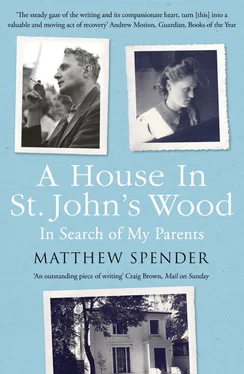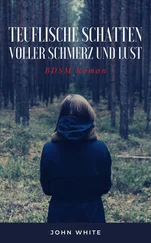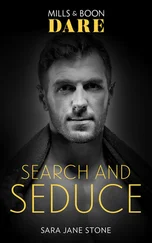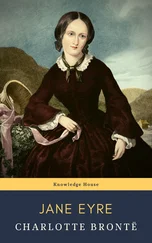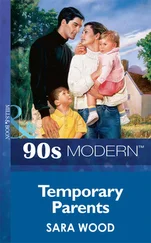Having thus embarrassed his eldest son, my grandfather continued with a stirring sermon along the lines of ‘On, and always on!’ (It’s the title of the last chapter of his autobiography.) There was a boy-scout element to Harold and he wanted to inspire these youngsters with manliness. But it did not go down well. It was just after the First World War during which many former pupils had lost their lives. Their names glowed freshly on the oak panels behind him.
‘You killed him, my dear,’ said Wystan over supper at Loudoun Road, around the time when we wrote the Tolkien poems together. And when Dad started laughing, he said firmly, ‘You killed him by ignoring him.’ Dad stopped laughing and looked annoyed. He’d never believed Auden’s theory that sickness, or even death, comes from damage to the psyche: that heart disease comes from an inability to love, that cancer comes from ‘foiled creative fire’. He called this aspect of Auden’s imagination ‘medieval’. In this case Wystan – smiling at Dad with benign condescension – was saying that the young Spender boys had killed their father with snubs.
I don’t know why my father had such difficulties with his parents, but it might have had something to do with the anger of young people towards the older generation, which they held collectively responsible for the disaster of the First World War. How could anyone believe in the world of ‘clean thoughts in clean bodies’ after that? Stephen hated his father. He thought he was a failure. He was only seventeen years old when Harold died, so his relationship was frozen in an adolescent image where Harold was the hieratic statue that had to be toppled from its pedestal. If ‘killing the father’ is an essential part of growing up, Stephen did his early.
It was easy to mock this man who could never earn enough money to keep his family going and who yearned for unattainable positions of power. But the bitterness with which Stephen writes in his novels and his poems about ‘failure’ meant that, at some level, he subscribed to Harold’s romantic notion of life as a series of peaks, of challenges, of high aspirations and magnificent achievements. ‘Failure’ was Stephen’s way of defeating his father, but it also kept alive Harold’s scale of values.
When Stephen was twelve, Harold stood as a Liberal candidate in a general election. My father remembered being hauled around Bath in a pony-carriage with his two brothers, each with a placard round his neck saying ‘Vote for Daddy’. Harold lost, and the effect on Michael and Stephen was traumatic. Michael said: ‘When they are very young, the children of a public man worship their father for being famous – a kind of god: but it’s extraordinary how soon they get to realize it if he’s a public failure.’ Michael developed a stammer. He decided that his father was ‘inefficient’, which in his eyes was the worst thing a man could be. Stephen, instead, just couldn’t stop crying. It confirmed his suspicion that his father was a windbag whose exhortations of ‘on and ever on’ were meaningless.
Harold Spender’s wife, my grandmother Violet Schuster, came from a successful Jewish family that had emigrated from Germany to England in the 1860s. At the time of their marriage, the Schusters established a trust for Violet and her children – a long document camouflaging the fact that Harold wasn’t allowed to touch it.
Violet was a delicate woman who gave birth to four children in four years, one after the other. She died in 1921, at home, on the kitchen table, after an operation to remedy complications deriving from a hysterectomy. For years she’d struggled with a condition that could not be named. Her death was a great shock. Until then she had been able to run the house (peremptorily) and accompany her husband on his frequent trips to Europe and America.
My father’s dominant memory of her was of her complaints. Too much noise was coming from the children’s room; they’d given her a headache. Because the details of her state of health were never discussed, he probably assumed that his mother was more neurotic than was the case. ‘Hysteria’, in Aristotelian terms, means blood boiling in the womb, and I’m sure that my father’s incapacity, indeed terror, of anything resembling a woman’s lack of control over her body stemmed from an unhealed memory of his mother’s sufferings.
They all spent a fortnight in the Lake District during the First World War. Violet was in a bad state because of the death of her much loved brother in the trenches. The war was present even in this beautiful place. She noticed that Keswick had been emptied of its men, leaving behind only those who were working on the farms. She saw several Scottish soldiers on the train drinking desperately at the thought of having to go back to the front. ‘A thin match-boarding separates us all from some terrible thing dimly known.’
In spite of her dark state of mind, they enjoyed this moment of escape. It was one of the few times when they were together as a family. Stephen chased butterflies, Humphrey collected crystals that glittered on the paths leading up into the hills behind the farm. When it rained, slugs sailed down the paths like barges on the Thames. Michael bonded with Harold and learned how to row a skiff on Derwent Water. Harold also taught Michael about climbing, and gradually they formed a team from which the others were excluded. Harold was a great climber. His guide to the Pyrenees is still read. There’s even a recent translation into Catalan.
For the rest of his life, Stephen wrote and rewrote his memories of Skelgill Farm. A key moment took place when he overheard Harold reading Wordsworth’s Prelude to Violet as they rested in deckchairs looking at the sunset. They were in deepest Wordsworth country; it was a predictable book to choose. Stephen, aged eight, understood ‘Wordsworth’ or ‘Worldsworth’ to have something to do with his father’s metaphorical symbolism: the world was a word, and the word had worth – was valuable.
Stephen asked his mother why Wordsworth was a poet, and what a poet was. She said:
Wordsworth was a man who, when he was a child, ran through the countryside and felt himself to be a living part of it, as though the mountains were his mother, his own body before he was born. And when, in later life, while he was still young, he came back from many journeys to the lakes, he felt all those memories, which were one with the scenery, surge through his arms and legs and his whole body on his walks here, and come out through his fingers that held a pen, as words that were his poems.
After Violet’s death in December 1921, Harold went into a decline. The finances of the household were now controlled by his mother-in-law, Hilda Schuster, with whom Stephen formed a conspiratorial relationship based on books and trips to the theatre and long conversations of a kind that Harold’s self-righteousness precluded. Stephen’s hatred of his father could have derived from a subconscious conviction that Harold was responsible for his wife’s death, but in the many texts my father left, he stresses only the absurdity of his father’s grief. ‘I am a broken man,’ said Harold over lunch, blinking at his children. ‘You are all that your poor old father has left.’
In his autobiography, my father writes: ‘it is no exaggeration to say that at the end his unreality terrified me’. In 1940, writing his novel The Backward Son , Stephen returned to his father’s reaction to his wife’s death. Harold’s lack of reality has become a caricature. ‘He saw what he had never seen – that he was a fool, and that she had a touch of genius. “The divine fire of Parnassus breathed on her,” he thought, automatically trying to make this thought unreal.’ (Harold published Violet’s poems soon after she died, but he never claimed that she was an unrecognized genius.) ‘It was she, he now realised, who had saved him; it was she who had made him, in spite of everything – he could grasp it now – a worldly failure. For he knew now that he would never succeed, he would never be in the Cabinet, he would lose his seat in the House, he would be despised.’ (In this novel Harold is an MP, a role he never achieved in life.) ‘His one saving grace which he could secretly cling to for the rest of his life was his sense of failure.’
Читать дальше
